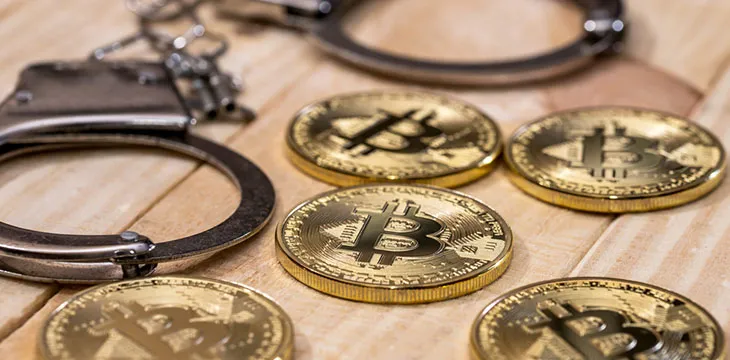|
Getting your Trinity Audio player ready...
|
The arm of the law is long, and so is its memory: the U.S. Department of Justice announced it had sentenced a man who stole 50,000 bitcoins from the Silk Road Marketplace in September 2012. James Zhong of Gainesville, Georgia, received a one-year and one-day prison sentence for his decade-old crime from the Southern District of New York, a crime that almost allowed him to get away with billions of dollars.
Zhong, who was reportedly neither a customer nor seller on Silk Road’s dark web marketplace, managed to accumulate a treasure trove of digital, physical, and business assets worth (at one stage) more than US$3.4 billion—much of which he had stored in safes and food tins in his house. His ill-gotten gains, which eventually included 53,500 BTC, were seized by the government between November 2021 and last week.
“Cyber-criminals should heed this message: we will follow the money and hold you accountable, no matter how sophisticated your scheme and no matter how long it takes,” U.S. Attorney Damian Williams said.
Given that Silk Road was shut down in 2013 and its operator Ross Ulbricht received a life sentence for his efforts in 2015, it also appears the DOJ won’t let a theft slide simply because the victim was itself a criminal operation.
The Justice Department’s press statement didn’t elaborate on what led them to Zhong’s stash other than thanking “the relentless and skillful efforts of law enforcement in following the money.” But as should be common knowledge by now, blockchain records live forever, and a 50,000 BTC theft in 2012 is still enough to pique the curiosity of investigators. Williams added that Zhong had used “an impressive array of technological tools to frustrate tracing efforts.”
Zhong executed his scheme by creating nine new accounts on the (now defunct) Silk Road dark web marketplace, none requiring real names or identification. After first depositing amounts of bitcoin in the accounts (between 200 and 2,000 bitcoins in each one), Zhong then performed multiple withdrawals that exceeded the deposit amounts in quick succession, tricking Silk Road’s system into believing they were valid.
Once he’d withdrawn 50,000 coins, Zhong ran his gains through a “coin mixer” to hide his trail, and ceased all activity on Silk Road. Once he’d consolidated the takings in two wallet addresses, he never touched the coins again, waiting years for them to grow in (dollar) value. In 2017, following the BTC/BCH hard fork split, he used the addresses to gain 50,000 in BCH, which he traded in exchange for more BTC.
When law enforcement searched Zhong’s house in Georgia on a warrant in November 2021, they found the assets in an underground floor safe and on a single-board computer kept under blankets in a Cheetos popcorn tin in his bathroom cabinet. They also found US$661,900 in cash, 25 Casascius physical bitcoins worth 174 BTC, four one-ounce silver bars, three one-ounce gold bars, four 10-ounce silver bars, and one gold coin. They also found 11.116 extra BTC. Between March and June 2022, Zhong “voluntarily” surrendered a further 1,004 BTC in three stages.
The District Court seized the assets and obtained asset forfeiture orders, including an 80% interest in a company called RE&D Investments LLC, a company based in Memphis that had “substantial real estate holdings.”
Zhong pleaded guilty to a single count of wire fraud before N.Y. Southern District Judge Paul G. Gardephe prior to receiving his sentence.
The case is impressive as much for the technical knowledge of both the perpetrator and his investigators as it is for their foresight and long-term dedication. In 2012, Bitcoin was worth far less than US$100 per coin—meaning Zhong’s theft was still sizeable, but not in the billion-dollar realm. However, the fact that Zhong managed to keep the amounts locked away and untouched for so long suggests he expected to become very wealthy from the crime someday.
It also shows that what may be sophisticated means of hiding one’s digital crimes in 2012 may be more easily overcome by investigators a few years into the future.
For the DOJ’s part, it shows justice can and will eventually catch up with such criminals, even if it takes decades. Silk Road itself may be long-dead and unmourned, but a theft is a theft, and investigators will use the blockchain’s permanent transaction records to pursue a significant one regardless.
Watch: Kurt Answers the viewers most urgent Blockchain and Bitcoin Questions at CoinGeek Weekly Livestream

 07-02-2025
07-02-2025 





